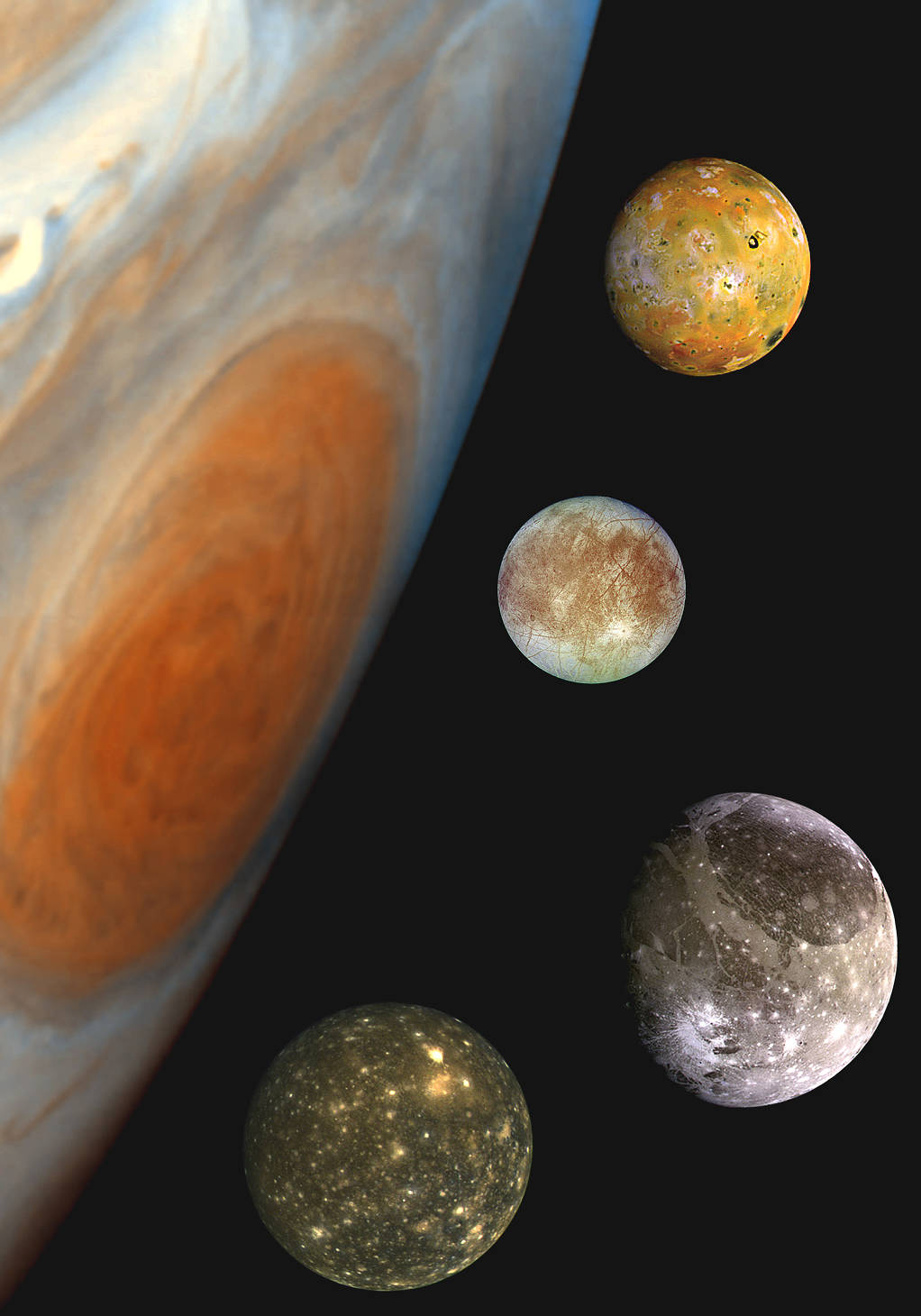Announcement
ISSI-BJ Workshop | Exploring the Jovian satellite system: from formation to habitability, 3-7 June 2024, Beijing

Context
The Jupiter system is the most massive secondary planetary system in the Solar System. Its formation and early evolution had a profound influence on the sculpting of the architecture of the solar system and on the delivery or water and other chemical species to the inner planets. Its satellite system offers a broad diversity of objects whose inventory and characterization are still incomplete. Despite eight years of intensive exploration by NASA’s Galileo mission, the formation scenarios, geology, geochemistry, geophysics and potential habitability of the four Galilean moons continue to challenge our understanding. These “big questions” have motivated a “new wave” of space missions to the Jupiter system and its surroundings, one of which is operational (Juno), while others are in development (JUICE, Europa Clipper, and LUCY, to be followed by CNSA’s Tianwen-4).
The science of the Jovian satellites, among which the four Galilean moons offer a diversity of analogs to terrestrial planets, is as interdisciplinary as the study of our Earth-Moon system. To understand their uniqueness and diversity and unravel the mysteries of their origins, workings, mutual couplings and habitability, one must call in a broad spectrum of geoscience and astrophysics disciplines: geology, cosmo- and geochemistry, geophysics, space plasma physics, ocean and atmosphere sciences, astrobiology, astrometry, astrodynamics…
Juno arrival at Jupiter in 2016, 13 years after the end of the Galileo mission, provided a new perspective, addressing important Jupiter and satellite science questions. Now in its extended mission, Juno offers the first close look at Jupiter’s satellites and rings since Galileo and Voyager over 20 years ago, and just a decade before the next wave of space missions (Lucy, JUICE, Europa Clipper) reaches the Jupiter system. Holding this workshop on the Jovian satellites in 2023 will ideally serve the preparation of the analysis of the new harvest of observations these missions will return, and help establish the science rationale for new Jupiter system mission initiatives, particularly in China where Tianwen-4, a mission aiming at assembling the puzzle of the scenario of the formation of the Jupiter system is currently under study, and in the U.S. where new missions to the Jovian system are being considered (Europa Lander, Io Observer…).
- Review the current status of our understanding of the formation, evolution, workings, and habitability potential of the moons and small bodies (Galilean satellites, inner regular satellites, irregular satellites and Jovian Trojans).
- Review how current (Juno) and developing missions (JUICE, Europa Clipper and Lucy) will address these key questions and identify science objectives and goals for the next set of missions to further our understanding of the Jupiter system.
- Develop a plan for the next steps in exploring the Jovian system.
- Provide a high-level reference book for scientists currently researching the system or developing and planning future Jupiter system missions over the next two decades.
Following the workshop, Springer will publish its output as a volume in the Space Science Series of ISSI. The objectives of the book are:
(a) Produce the first recent comprehensive book on the Jovian satellite system as a whole
(b) review our current understanding of its formation, evolution and workings
(c) produce a tool to help scientists involved in the next wave of Jupiter missions prepare their observations and scientific analysis tools
(d) in addition, address a broader audience by presenting “hot topics” of Jovian satellites science of relevance to other scientific fields.
The book will be structured and written to address two main categories of readers:
(a) planetary scientists from all fields preparing to take part in future space-based, Earth-based, modelling and theoretical studies of the Jovian satellites
(b) a broader community from geosciences, astrophysics and astrobiology interested to better understand the implications of discoveries and lessons learnt in the Jupiter system for their own field.
Date: 03-07 June 2024
CONVENERS AND WORKING GROUP LEADERS
| Prof. Michel Blanc | IRAP,CNRS-CNES-Univ,Toulouse,France |
| Dr. Scott Bolton | SwRI,San Antonio,USA |
| Prof. Min Ding | MUST,Macau,China |
| Prof. Jinhua Hao | USTC,CAS,Hefei,China |
| Prof. Jianghui Ji | PMO,CAS,Nanjing,China |
| Dr. Tomoki Kimura | TUS,Tokyo,Japan |
| Prof. Valery Lainey | IMCCE,Paris,France |
| Prof. Lei Li | NSSC,CAS,Beijing,China |
| Prof. Francis Nimmo | US Santa Cruz,USA |
| Prof. Olga Prieto Ballesteros | INTA-CAB,Madrid,Spain |
| Prof. Christophe Sotin | LPG,Nantes,France |
| Dr. Federico Tosi | IAPS/INAF,Frascati,Italy |
| Prof.Tim Van Hoolst | ORB,Brussels,Belgium |


